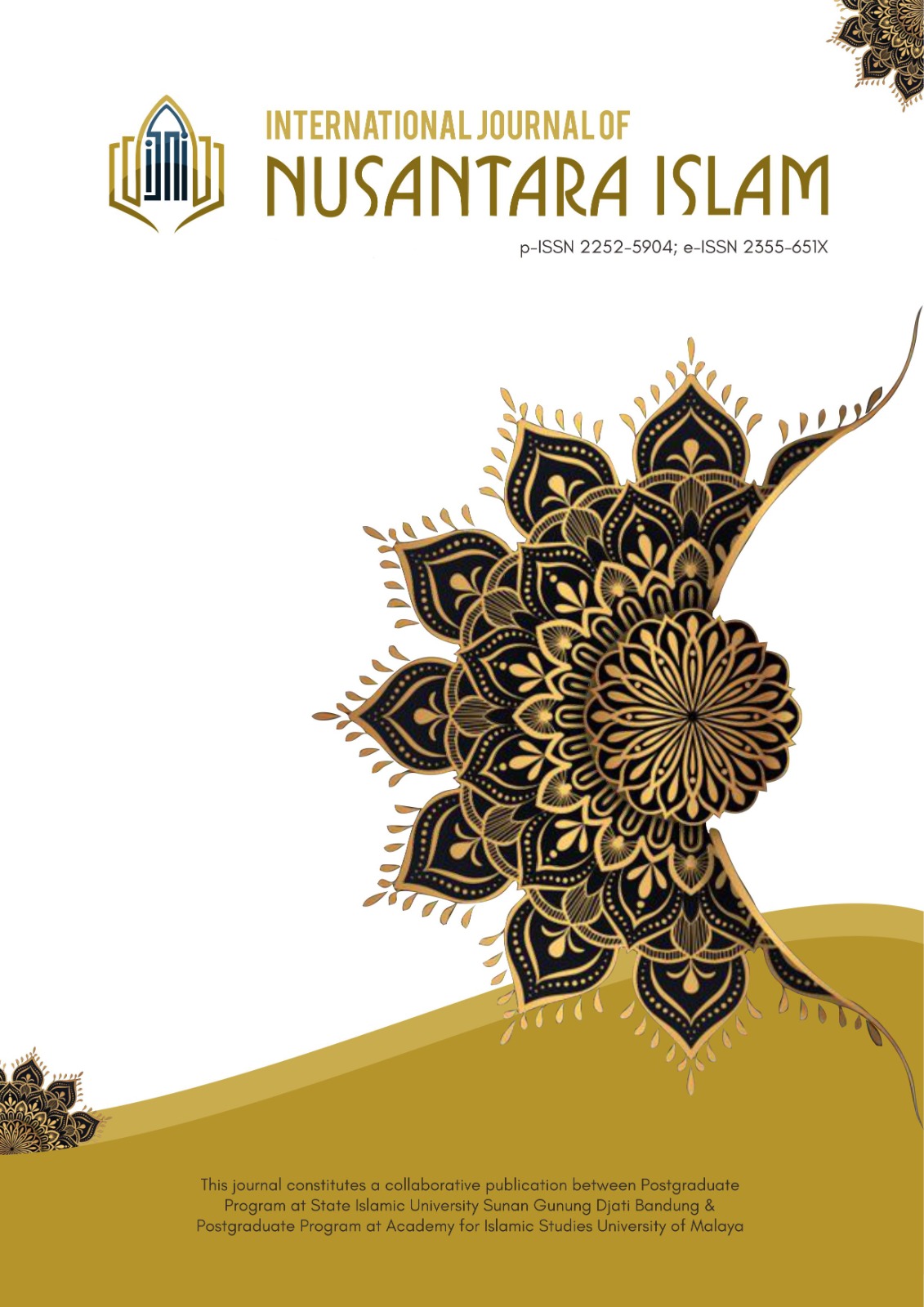Life Long Education in Islamic Perspective
Main Article Content
Abstract
John Dewey's one main character philosophic Pragmatism States that: the Educational process has no end beyond itself in its own end. The term statement of the concept of lifelong education began in the Western philosophic pragmatism developed there. The concept of lifelong education believes that education is not only limited to education at the school but continued up to the end of life. The concept of lifelong education appears along with the emergence of some of the challenges in the world of education as presented by Paul Lengard of which include: the rate of change, demographic expansion, innovation in science and technology, the challenge of politics, information and crisis in the pattern of life. The concept of education is apparently emerging from some Hadith of the Prophet Muhammad that encourages humans to continue to study until the end of his life. This paper tries to expose the concept of lifelong education according to the Islamic education.
Article Details
The Authors submitting a manuscript do so on the understanding that if accepted for publication, copyright of the article shall be assigned to International Journal of Nusantara Islam, Sunan Gunung Djati State Islamic University.
The copyright encompasses exclusive rights to reproduce and disseminate articles in all forms and media, including reprints, photographs, microfilm, and similar reproductions, as well as translations. Some or all of the contents of this journal can be stored in databases and transmitted in any form and media without the need for written permission from the International Journal of Nusantara Islam, Sunan Gunung Djati State Islamic University.
The Editors and the Advisory International Editorial Board make every effort to ensure that no wrong or misleading data, opinions or statements be published in the journal. In any way, the contents of the articles and advertisements published in the International Journal of Nusantara Islam (IJNI) are sole and exclusive responsibility of their respective authors and advertisers.
References
Akyawi, A. K. (2009). Al-Tarbiyah wa al-Ta’lim fi Madrasah al-Muhammadiyah (M. M. Rida, Trans.). Jakarta: Pustaka al-Kautsar.
al-Asfahani, al-raghib. (2004). Mu’jam al-Mufradat fi Alfazh al-Qur’an. BayrÅ«t: DÄr al-Kutub al-’Ilmiyyah.
al-Jubaydi, M. M. (1306). Taj al-Arus Section VIII. Egypt: al-Hairiyat al-Mansuriyat Bijaliyat.
al-Nahlawi, A. R. (2001). Pendidikan Islam di Rumah, Sekolah dan Masyarakat. Jakarta: Gema Insani Press.
Amrullah, A. M. K. (2008). Fase Motif Beragama Manusia menurut Islam. Jurnal Psikologi, 5(1).
Aspin, D. N., Chapman, J., Hatton, M., & Sawano, Y. (Eds.). (2012). Lifelong Education: Some Deweyan Themes. In International Handbook of Lifelong Learning. Dordrecht: Springer Science & Business Media.
Beckett, K. (2018). John Dewey’s conception of education: Finding common ground with R. S. Peters and Paulo Freire. Educational Philosophy and Theory, 50(4), 380–389. https://doi.org/10.1080/00131857.2017.1365705
Buckingham, D. (2013). Beyond Technology: Children’s Learning in the Age of Digital Culture. Cambridge: John Wiley & Sons.
Budiman, M. N. (2001). Pendidikan dalam Perspektif al-Qur’an. Jakarta: Madani Pres.
Delors, Jacques. (2013). The treasure within: Learning to know, learning to do, learning to live together and learning to be. What is the value of that treasure 15 years after its publication? International Review of Education / Internationale Zeitschrift Für Erziehungswissenschaft, 59(3), 319–330.
Ebenstein, W., & Ebenstein, A. O. (2000). Great Political Thinkers: Plato to the Present. New York: Harcourt College Publishers.
Horne, H. H. (1915). The Philosophy Of Education. New York - London: The Macmillan Company.
Keith, D., W., & Norman, L. (2014). Lifelong Learning. London: Routledge.
Langeveld, M. J. (n.d.). DIKLAT PEDAGOGIK. Yogyakarta: Gama.
Lengrand, P. (1975). An Introduction to Lifelong Education. London: Croom Helm.
Marimba, A. D. (1987). Pengantar Filsafat Pendidikan Islam. Bandung: P.T. Alma’arif.
Moleong, L. J. (1989). Metodologi Penelitian Kualitatif. Bandung: Remadja Karya.
Mudyahardjo, R. (2001). Pengantar pendidikan: Sebuah studi awal tentang dasar-dasar pendidikan pada umumnya dan pendidikan di Indonesia. Jakarta: Raja Grafindo Persada.
Nata, A. (2005). Filsafat Pendidikan Islam. Gaya Media Pratama.
Pan, D. Y. (1997). Lifelong Learning: The Whole DAMN Cycle--A Singapore Perspective. Retrieved from https://eric.ed.gov/?id=ED411877
Poerwadarminta, W. J. S. (2003). Kamus Umum Bahasa Indonesia. Jakarta: Balai Pustaka.
Rosyidin, D. (2009). Konsep Pendidikan Islam; Ikhtiar Pendidikan Formal Persis dalam Mencetaj Generasi Tafaqquh Fiddin. Bandung: Pustaka Nadwah.
Shabbir, J., & Anwer, T. (2015). Artificial Intelligence and its Role in Near Future. ArXiv:1804.01396 [Cs], 14(8), 1–11.
Syah, M. (2011). Psikologi Belajar. Jakarta: RajaGrafindo.
Tafsir, A. (2009). Filsafat Pendidikan Islam. Bandung: Remaja Rosda Karya.
Taylor, S. J., & Bogdan, R. (1998). Introduction to Qualitative Research Methods. New York: Wiley.

